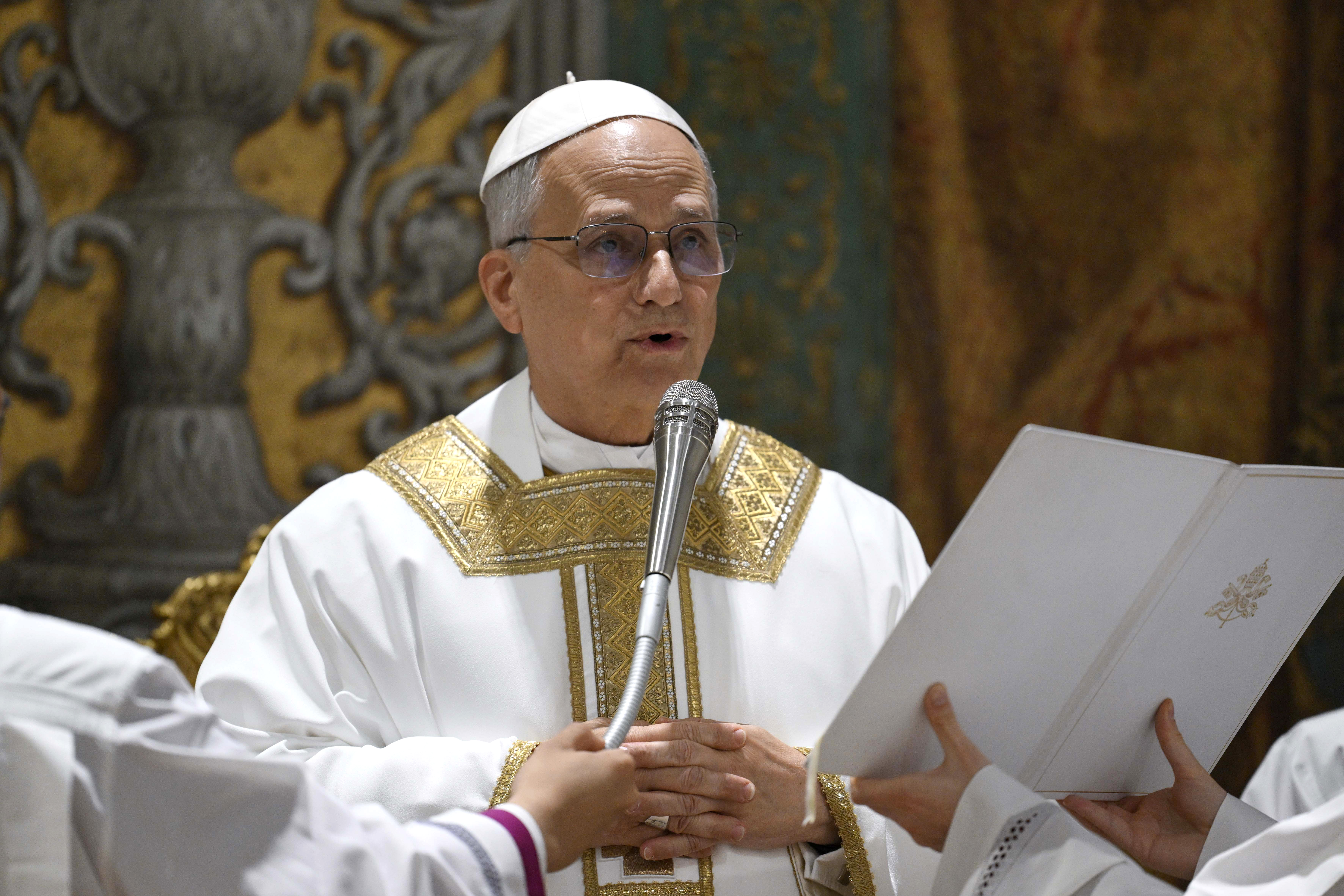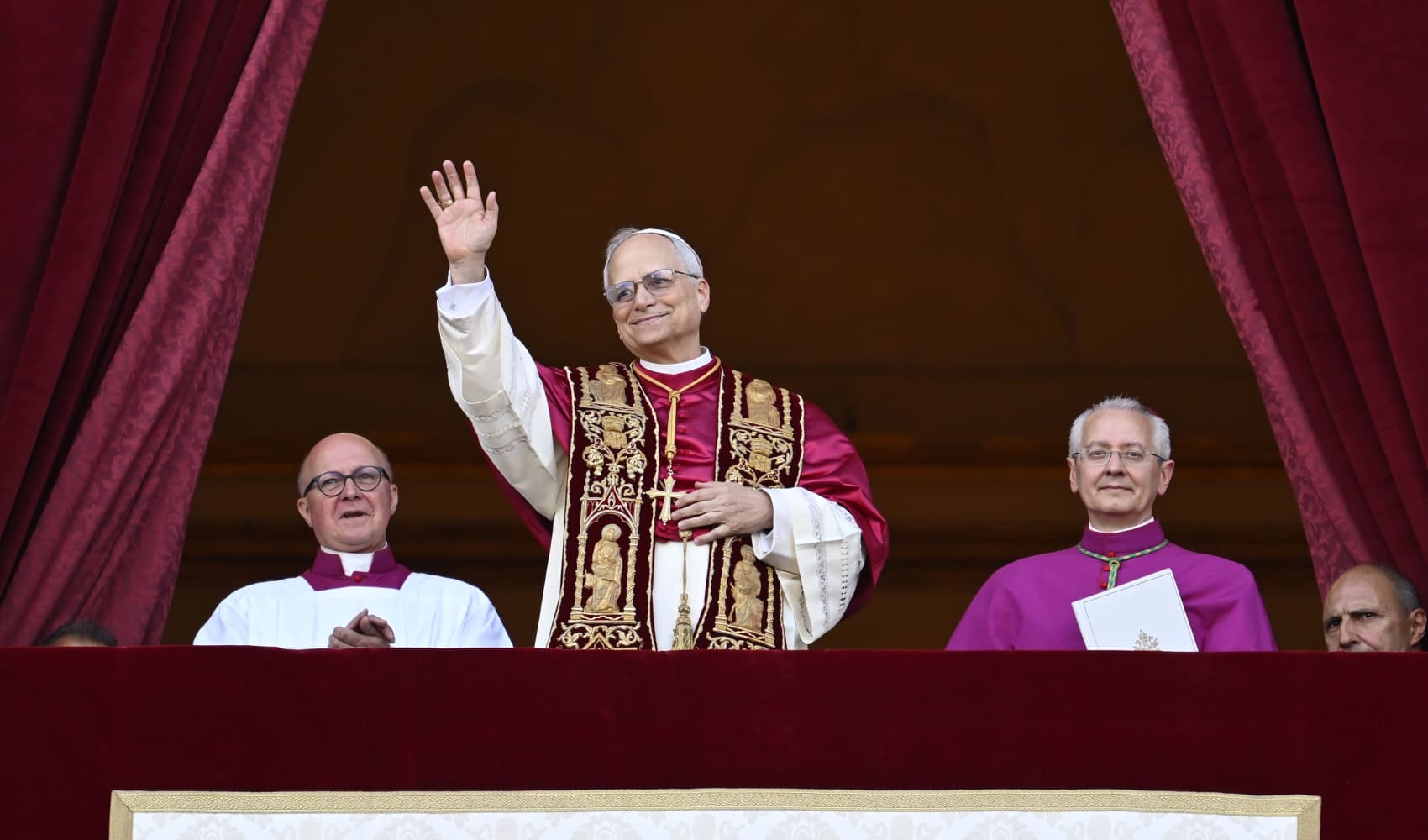Pope Leo XIV's First Mass: A Historic Era Begins!
Pope Leo XIV: A New Era Begins After Historic Election
A North American Pope: A New Dawn for the Catholic Church
History has been made! Pope Leo XIV, the first Pope hailing from North America, has celebrated his inaugural Mass in the hallowed Sistine Chapel. Imagine the weight of history on his shoulders, the expectations of millions, and the sheer gravity of stepping into the shoes of his predecessor, Pope Francis. This election marks a pivotal moment, a potential turning point for the Catholic Church.
The Cross and the Blessing: Leo XIV's Humble Acceptance
In an unscripted address delivered in English, Pope Leo XIV, formerly Robert Prevost, an Augustinian missionary from Chicago, humbly acknowledged the dual nature of his new role. He described his election as both a "cross and a blessing." Don't you think that's a powerful metaphor? A cross representing the burdens and challenges ahead, and a blessing signifying the opportunity to guide and shepherd the faithful.
A Call to Action: Spreading the Gospel with Joy
His homily, though brief, was impactful. He emphasized the urgent need to joyfully spread Christianity in a world that often ridicules and rejects it. It's a daunting task, isn't it? To keep the faith alive and vibrant in an increasingly secular world requires courage, conviction, and a renewed sense of purpose.
Chicago to the Vatican: Robert Prevost's Journey
From the bustling streets of Chicago to the heart of the Vatican, Robert Prevost's journey is nothing short of extraordinary. He's the 267th Pope, and his election signals a potential shift in the Church's priorities and perspectives. He embodies a unique blend of American pragmatism and deeply rooted faith.
Overcoming Tradition: A Surprise Election
The Unexpected Choice
Pope Leo XIV's election surprised many, breaking from traditional European-centric choices. Think about it: the College of Cardinals saw fit to elect a leader from beyond the usual power centers, suggesting a desire for fresh perspectives and a broader global understanding.
Significance of a Non-European Pope
What does this mean for the future of the Catholic Church? His North American background could bring a new perspective to issues facing the Church, particularly in the Americas, where Catholicism is experiencing both growth and challenges.
Following in Francis' Footsteps: A Legacy of Social Justice
Pope Francis left an indelible mark on the papacy, championing social justice and advocating for the marginalized. The question now is, how will Pope Leo XIV build upon this legacy? Will he continue to prioritize issues like poverty, environmentalism, and immigration? Only time will tell, but the early signs suggest a commitment to similar values.
English as the Language of the Papacy: A Sign of the Times?
The fact that Pope Leo XIV addressed the cardinals in English is noteworthy. Does this signal a shift towards greater inclusivity and accessibility? English has become a global lingua franca, and using it could help the Church connect with a wider audience, particularly younger generations.
The Weight of Responsibility: Leading the Catholic Church
The Challenges Ahead
Leading the Catholic Church is no easy feat. Pope Leo XIV will face numerous challenges, including declining church attendance in some regions, the ongoing clergy abuse crisis, and the need to address complex ethical issues in a rapidly changing world.
Relying on the Cardinals: A Collaborative Approach
He emphasized his reliance on the cardinals, calling for them to "walk with me." This suggests a collaborative leadership style, where he values the input and support of his fellow Church leaders. Is this an indication of a more transparent and inclusive papacy?
A Global Perspective: Understanding the Church's Reach
The Catholic Church is a global institution with a presence in nearly every country on Earth. Pope Leo XIV's leadership will require a deep understanding of the diverse cultures, challenges, and opportunities facing Catholics around the world. Can he effectively bridge these cultural divides and unite the faithful?
The Importance of Community: Friends of Jesus
A Call to Unity
Pope Leo XIV's words resonated with a sense of community. He referred to the Church as "a community, as friends of Jesus." This highlights the importance of fellowship, support, and shared faith in navigating the challenges of modern life.
Building Bridges: Fostering Dialogue
In an increasingly polarized world, the Church has a crucial role to play in fostering dialogue and understanding. Can Pope Leo XIV effectively build bridges between different cultures, religions, and ideologies? His background as a missionary suggests he's well-equipped to do so.
The Power of Belief: Announcing the Good News
At the heart of Pope Leo XIV's message is the power of belief. He called on the cardinals to "announce the good news, to announce the Gospel." This is a fundamental aspect of the Church's mission, and it requires courage, conviction, and a unwavering commitment to spreading the word of God.
The Symbolism of the Sistine Chapel
A Place of History
The Sistine Chapel is more than just a building; it's a symbol of the Catholic Church's rich history and artistic heritage. It's where popes are elected, and it's where some of the world's most iconic artwork resides. What better place to celebrate a first Mass?
The Significance of the Frescoes
Imagine celebrating Mass surrounded by Michelangelo's breathtaking frescoes. These masterpieces depict scenes from the Bible, reminding us of the stories and values that underpin the Christian faith. The setting itself adds a layer of solemnity and reverence to the occasion.
The Future of the Church Under Leo XIV
Maintaining Relevance in a Changing World
How will Pope Leo XIV keep the Catholic Church relevant in a world that's constantly evolving? He must address issues like technology, social media, and changing cultural norms while remaining true to the Church's core values and teachings.
Addressing Internal Challenges
Beyond external challenges, Pope Leo XIV must also address internal issues within the Church, such as declining vocations, financial transparency, and the need for greater accountability. It's a delicate balancing act, requiring both strength and compassion.
The People's Pope? Connecting with the Faithful
Will Pope Leo XIV be seen as a "people's pope," like Pope Francis? Can he connect with ordinary Catholics from all walks of life, inspiring them to live out their faith with joy and enthusiasm? His background as a missionary suggests he has a deep understanding of the challenges and struggles faced by many people.
A New Chapter Begins: Pope Leo XIV's Papacy
The election of Pope Leo XIV marks the beginning of a new chapter in the history of the Catholic Church. His words and actions in the coming months and years will shape the Church's direction and influence its role in the world. It's a time of both great challenge and great opportunity.
Conclusion: A Time of Hope and Expectation
Pope Leo XIV's election is a significant moment for the Catholic Church. As the first North American Pope, he brings a fresh perspective and a unique set of experiences to the papacy. His emphasis on community, belief, and the joyful spread of the Gospel offers a message of hope and inspiration. The world watches with anticipation as he embarks on this incredible journey.
Frequently Asked Questions
Here are some frequently asked questions about Pope Leo XIV's election and papacy:
- Who is Pope Leo XIV?
Pope Leo XIV, formerly Robert Prevost, is the 267th Pope of the Catholic Church and the first Pope hailing from North America. He was previously an Augustinian missionary from Chicago.
- Why is his election considered historic?
His election is historic because he is the first Pope from North America, breaking a long tradition of European-centric papal selections. This could signal a shift in the Church's priorities and perspectives.
- What are some of the key challenges facing Pope Leo XIV?
He faces numerous challenges, including declining church attendance, the clergy abuse crisis, the need to address complex ethical issues, and maintaining the Church's relevance in a rapidly changing world.
- What did Pope Leo XIV say in his first Mass?
During his first Mass, Pope Leo XIV spoke about the need to joyfully spread Christianity and emphasized his reliance on the cardinals to "walk with me" as they continue to announce the Gospel.
- How will Pope Leo XIV's papacy differ from Pope Francis'?
While it is still early, Pope Leo XIV is expected to build upon Pope Francis' legacy of social justice while also bringing his own unique perspective and leadership style to the papacy. His North American background will likely influence his approach to various issues facing the Church.

